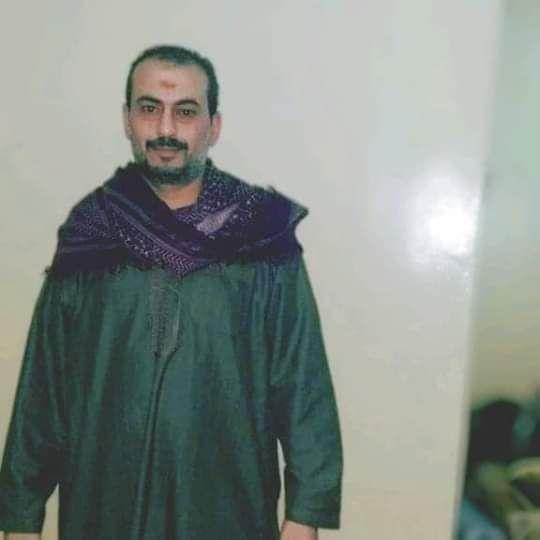
On 14 January 2020, in the city of Tabuk, the government of the Kingdom of Saudi Arabia carried out a discretionary death penalty against an Egyptian citizen, Muammar al-Qaddafi Mohammed Nagy al-Qanawy, on charges of smuggling contraband amphetamine pills.
The Ministry of Interior announced the execution in a statement published by the Saudi Press Agency. It is the fourth execution on drug charges of the 10 sentences carried out as of 15 February 2020.
ESOHR believes that al-Qanawy’s trial involved numerous violations of international law. Not only is a death sentence for drug charges a violation of international law, since such a charge is not among the most serious crimes for which the death sentence is permitted, but moreover, the conditions for justice were lacking during the period of arrest and trial.
According to close sources, al-Qaddafi was a heavy machinery operator who was driving a truck carrying onions from Egypt to Saudi Arabia, when customs security forces at the port of Duba arrested him on 10 August 2017, after discovering drugs in his truck.
Security forces struck al-Qaddafi on his body and face, then took him to the police station and from there to Tabuk Prison, where he was physically and psychologically tortured. In addition to punching and kicking him, a security officer placed his foot on al-Qaddafi’s head and pressed down on it and insulted him and his family. Reports indicate that al-Qaddafi was unable to attend two sessions of his trial due to the injuries he sustained during torture.
Al-Qaddafi’s family did not know of his arrest, and the Egyptian Embassy in Saudi Arabia was not informed and was not able to get in touch with him. In September 2017, almost a month after his arrest, al-Qaddafi used another prisoner’s phone to call his family and tell them of his arrest, torture, and poor treatment.
Al-Qaddafi told his family that he was unaware that the truck was carrying drugs and that he had heard officers at the port of Duba whispering that he would be held responsible regardless of the circumstances. He also said that he was forced to sign a document of unknown contents, which the investigator told him provided for his return to Egypt for trial there, but later turned out to be a confession document.
Al-Qaddafi was deprived of his right to defend himself. He was not appointed an attorney and, after his contacting a lawyer, his family was also unable to obtain a lawyer because of the high costs. The family tried to contact the Egyptian Embassy in Saudi Arabia and the Ministry of Interior, as well as several entities concerned with Egyptian affairs in Saudi Arabia, but was still unable to secure a lawyer. These entities indicated that al-Qaddafi had confessed to the charges against him by signing the document, and thus they could not help him.
At trial hearings, al-Qaddafi confirmed before the judge that he had been forced under duress to sign a document whose contents were unknown to him, and he denied the charges against him. Nevertheless, the judge did not check into this and, in June 2018, relied on the statements in sentencing him to a discretionary death penalty.
On 14 January 2020, al-Qaddafi’s brother received a call from one of the inmates at Tabuk Prison, informing him that they did not see al-Qaddafi in his cell that morning, and there was news inside the prison that he had been executed. The family tried without success to verify the information until they found the news in one of the official Saudi newspapers.
After the news of his execution was published, al-Qaddafi’s family went to the Egyptian Foreign Ministry to request the documents recording the execution and the death certificate, and also sought the body for burial. The family received no confirmation, and, two weeks after the execution, they repeated their request that the Foreign Ministry intervene to obtain the death certificate and the body, to no avail.
ESOHR notes that the ongoing issuance of death sentences based on drug charges is a blatant violation of international law. It also believes that the sentence against the Egyptian citizen, Muammar al-Qaddafi Mohammed Nagy al-Qanawy, involved clear legal abuse, given that it was issued based on confessions extracted under torture and after a trial that lacked all requirements for fairness, particularly the right to defend oneself.
ESOHR stresses that, given the implementation of the ruling despite the violations, the only remedy is to investigate allegations of torture and ill-treatment by security officers at the port of Duba and in Tabuk Prison, and hold accountable those responsible, including those who ignored the allegations. In addition, ESOHR emphasizes the need to hand over the victim’s body to the family to ensure their right to bury him.
ESOHR believes that the increasing number of executions in Saudi Arabia based on drug charges, especially against foreigners, is clear evidence that these sentences are not useful in preventing crimes, as the government alleges. In 2019, according to ESOHR statistics, 84 people charged with drug crimes were executed, six of whom were Egyptian nationals. Embassies and foreign ministries must perform their role in protecting their citizens working in Saudi Arabia, given the lack of justice in the Saudi judicial system.
